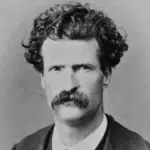In 1996, David Cronenberg directed a controversial film, starring James Spader and Holly Hunter, about people with a sexual fetish for car crashes. While the movie was well-received by critics, it was quickly forgotten by most people. That is, until 2004, when Paul Haggis directed a little ensemble drama that went on to win the Academy Award for Best Picture, and which just happened to share the name of Cronenberg’s earlier work — Crash. At the time, Cronenberg was none too pleased, reportedly proclaiming: “Functionally, it’s stupid. Once they’re both on the DVD shelves, there’s going to be confusion.”
He’d get no disagreement from the tweenage girl who asks her father to rent 2008’s Twilight, only to have him return with a gritty 1998 crime drama starring Paul Newman and Gene Hackman, with nary a pale, brooding vampire in sight. Nor from the Scorsese buff who puts the 2004 Howard Hughes biopic The Aviator on his Christmas list, only to have batty Aunt Edna buy him the forgettable 1985 Christopher Reeve film about an airmail pilot who crash-lands on a mountain full of hungry wolves. Nor from the loincloth enthusiast who thinks he’s found 2000’s Gladiator on TV, only to discover a young Cuba Gooding, Jr. navigating the dangerous world of illegal underground boxing.
In each of these cases, the second of two identically-named films became better known and more commonly associated with its title. But none of these names were particularly unique or memorable in and of themselves. And none of these cases of title reuse prompted legal action. Cronenberg, the director of the first Crash, said at the time that “The last thing a creative person wants is litigation, which is anti-creative.”
Of course, not everyone in the entertainment industry shares Cronenberg’s aversion to lawsuits (which is good, because otherwise I’d be out of business). This brings us to 2010’s entry in Hollywood’s “Think Green” contest, this time starring dueling magicians.
On Christmas Day, Sony Pictures Classics is set to release The Illusionist, a much-hyped, widely-anticipated animated film directed by Sylvain Chomet (The Triplets of Belleville) that many insiders predict will be nominated for an Academy Award.
Decidedly less excited about the film’s release is Illusionist Distribution LLC, which claims rights in the 2006 film with the same title. Starring Edward Norton and Jessica Biel, The Illusionist (2006) grossed $87 million worldwide and was itself nominated for an Academy Award for Best Cinematography.
In a lawsuit filed last month, Illusionist Distribution LLC claims that the new Chomet film bears a “striking similarity” to the plaintiff’s movie, alleging that both are set in Europe, both revolve around a “traveling magician/illusionist who wanders from country to country in search of a stage to perform his magic,” and both feature a protagonist who “soon meets a young girl who touches him emotionally and changes his perspective of life.”
But this isn’t a copyright case. Titles are not copyrightable, and as the plaintiff no doubt recognized, any similarities between the two films themselves are limited to general ideas and concepts which are not protectable. The plaintiff’s complaint instead relies on theories of trademark infringement and unfair competition, alleging that the Sony film’s identical title, subject matter and marketing campaign were designed to “confuse, mislead and deceive the public” into believing that the new film is related to or affiliated with 2006 version of The Illusionist.
While the U.S. Patent and Trademark Office has been known to grant trademark registrations for titles of film series, it has a long-standing policy to reject applications for single-film titles, which has left filmmakers (and their ever-creative lawyers) scrounging for alternatives to traditional federal trademark registration. In certain instances, titles that have achieved a high level of recognition among the public can be protected by state and federal trademark and unfair competition laws, which are designed to protect the consuming public from being duped by confusingly similar products or services. But such protection does not come easy.
In order to succeed on its claims, plaintiff Illusionist Distribution needs to prove that the titleThe Illusionist has acquired “secondary meaning” — essentially that when the public hears the title, they think exclusively of the plaintiff’s film. Second, the plaintiff needs to show a “likelihood of confusion” — that the public will be misled or deceived into believing that the defendant’s film is affiliated, associated or connected with the plaintiff’s film of the same name.
There are obviously movie titles that qualify for protection — Star Wars and Citizen Kaneimmediately come to mind — but these titles are either distinctive enough or have reached such an exalted status among moviegoers that they really can’t be duplicated. Movies with more modest popularity or titles consisting of common words or phrases will have a much tougher go of it.
Which is why it’s not surprising that last week, a Los Angeles federal judge ended the plaintiff’s bid (via an application for temporary restraining order) to prevent Sony Classics from promoting or releasing its film under the title The Illusionist. The court found that any trademark owned by Illusionist Distribution was “weak,” given the descriptive nature the term “illusionist” and the fact that the numerous books, consumer products and even an earlier film had used the title over the years (surely you’ll recall cult Dutch director Jos Stelling’s timeless 1983 film about…whatever that movie was about…OK, I’ve never heard of it either).
The court also rejected the plaintiff’s claims of similarity between the two Illusionist films, observing, “Although both products are movies about illusionists, they are so different that there is little chance that consumer confusion will ensue.” The plaintiff’s film is based on the 1989 short story “Eisenheim the Illusionist,” and centers on a stage magician who seemingly possesses extraordinary powers and falls in love with a duchess. The defendants’ motion picture is an animated art film, based on a screenplay written in the 1950s by Jacques Tati, about a struggling illusionist who is becoming older and weaker in the face of a new era of rock-and-roll and other modern forms of entertainment. The court also found no indication that the defendants marketed their film to the same audience as the plaintiff’s: “Defendants’ movie is geared toward animation aficionados and fans of independent art films,” whereas “plaintiff’s film has been advertised as a mainstream, live-action ‘period piece’ of interest to the general public.”
Given that the likelihood of establishing proprietary rights in most common movie titles is so difficult, why don’t more films share titles? No, it’s not the inherent courtesy and kindness of studio executives. The answer is the MPAA’s Title Registration Bureau, a voluntary agreement that is binding on all member organizations of the MPAA, including the major studios, as well as independent producers who sign the agreement. Members register in-development film projects with the bureau, which sends out lists of proposed titles. The members can then object to a title that is similar to one that has been previously registered. If the challenged title is not voluntarily withdrawn by the registering studio, the dispute will proceed to mandatory arbitration.
In one of the earliest examples of an MPAA title dispute, Warner Bros. registered the titleCasablanca in 1942, and then demanded that the title of the Marx Bros.’s A Night in Casablanca be changed. In what could be the best-ever response to a cease-and-desist letter, Groucho Marx reportedly stated that he “had no idea that the City of Casablanca belonged exclusively to Warner Brothers . . . What about ‘Warner Brothers’ — do you own that too? You probably have the right to use the name Warner, but what about Brothers? Professionally, we were brothers long before you were.” Warner Bros. later dropped its objection, and in 1946, A Night in Casablanca was released.
In 1996, Sony contended that Miramax’s title Scream was too similar to Sony’s Screamers. Miramax was initially ordered to pay $1,500 per screen per day in damages (which would have come to about $6 million for the movie’s opening weekend alone), but the dispute was later settled, clearing the way for Miramax’s now well-known Scream franchise (bonus fun fact: laterScream spoof Scary Movie actually used Scream’s original title). A few years later, MGM and New Line battled over Austin Powers in Goldmember, which MGM claimed ripped off its James Bond title Goldfinger (to which New Line might have responded, “Um, yeah, that was the point…”). The parties settled for various non-monetary concessions, reportedly including the services of Austin Powers star Mike Myers to promote a television broadcast of Goldfinger.
Such settlements are typical, with producers usually deciding that it’s easier and more cost effective to just change the movie’s name and avoid the fight, even if that means letting go of a name that is a known commodity. For example, you might recall Paramount recently releasing M. Night “I Swear This Movie Isn’t Racist” Shyamalan’s The Last Airbender, which was based on the popular animated television series Avatar: The Last Airbender. Producers dropped the “Avatar” part of the title after an objection from the producers of a little film that has grossed nearly three billion dollars worldwide.
The MPAA rules and procedures only bind those entities that have signed onto them, which explains why Illusionist Distribution was able to take Sony Classics to court in the first place. Of course, as the court’s denial of the plaintiff’s injunction motion shows, convincing a judge that the case isn’t just smoke and mirrors will be an even greater feat.








